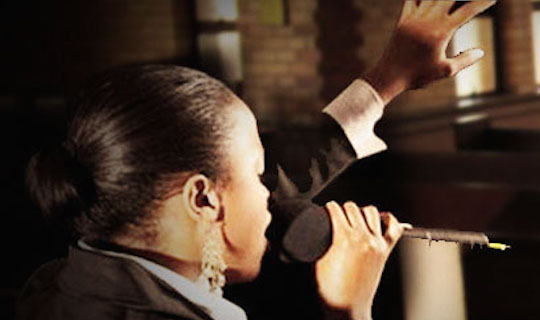 Some of the sermon materials provided at Palestine Portal may not deal directly with the Holy Land, although many of them do. All have clear applications to the issues and concerns of those who seek a just peace for Palestinians and Israelis. A few are not actually sermons, but provide rich subject matter from which to develop one.
Some of the sermon materials provided at Palestine Portal may not deal directly with the Holy Land, although many of them do. All have clear applications to the issues and concerns of those who seek a just peace for Palestinians and Israelis. A few are not actually sermons, but provide rich subject matter from which to develop one.
Whether you are clergy or laity, whether you expect to preach in church or speak in another venue, we hope these resources will inspire you and enable you to move your listeners to deeper reflection and prophetic action.
Materials are grouped by the sources from which they came, but all should be useful and worth investigating across denominations. We are eager to expand our listings of sermons; please send submissions to: [email protected].

KAIROS USA
Sermons by Mark Braverman
Faithfulness on Earth, First Congregational Church of Old Lyme, Connecticut – October 20, 2019
How are we to live as the forces of Empire are gaining ground everywhere we look, as our natural environment shows us that the planet will no longer support our greed and blindness — and it is the poor who will suffer first and suffer most? How are we to live when those responsible for governance only respond when you knock on their door, or more accurately, when they are knocked hard and repeatedly on the head, and even then only grudgingly? The text instructs us to bring the good news, the urgent message: that community and solidarity are here for us; it is the only answer.
God is Breaking In, Colgate Rochester Crozer Divinity School, Rochester, New York – Holy Thursday, April 24, 2014
The message of the risen Christ is that God has changed, God is doing something new and unprecedented. So also with the message of Pentecost, a call to a radical reorientation, a change of heart and mind. Jesus’ appearance on earth, his resurrection, the arrival of the Holy Spirit – all are kairos moments, God breaking into history and challenging his people to hear a new message. The message of Kairos Palestine challenges the Church today theologically and politically, a challenge to bring about the kingdom of God here on earth.
Can These Bones Live? Iona Abbey, Isle of Iona – Pentecost Sunday, May 27, 2012
Contrasting the first disciples’ experience on the Day of Pentecost with God’s promise in Ezekial: “I will cause breath to enter you and you shall live.” The church is called to recognize the signs of the times, the “insurmountable opportunity” of Kairos Palestine, a call to redemption and rebirth. The church has done it before and can do it again.
The Elephant in the Room, St. Johns Episcopal Church, Washington DC – March 30, 2008
The Easter experience is about waking up, being reborn from a previous existence and transformed. That requires true seeing and believing, the heart of the religious experience. The Christian scriptures that blame the Jews for Jesus death is the elephant we don’t want to deal with, for they have been the source of much persecution. We have lived for millennia with the consequences of both anti-Judaic scriptures and the first century struggle between the Jews who became Jesus’ followers and those who would not. Today Israel has lost its way and needs to return to the messages of the prophets, to have their eyes opened and to see with their hearts, to remember the lessons of Passover, and to embrace the challenge of Jesus the Jew, the man, the prophet.
EPISCOPAL CHURCH
Get In The Boat, by Lara Stroud
This sermon followed a mass shooting in Charleston, SC: When faced with acts of hatred and violence in our society, rather than passively withdraw, our faith calls us to face the storm and be a witness for his love and for justice. (Source: http://insearchofthinplaces.blogspot.com/2015/06/get-in-boat.html?m=1)
ISRAEL/PALESTINE MISSION NETWORK of the PRESBYTERIAN CHURCH (U.S.A.)
http://new.israelpalestinemissionnetwork.org
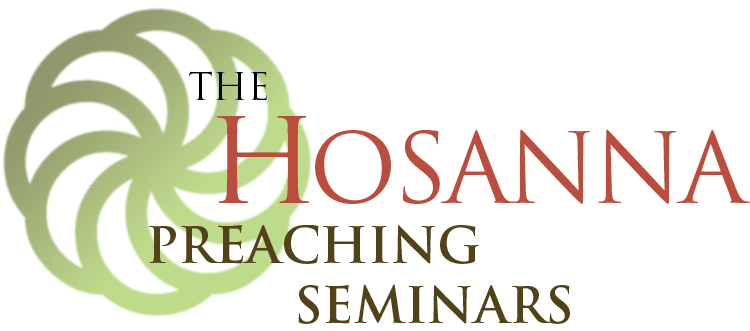 Learn more about the IPMN’s Hosanna Preaching Seminars and Prizes
Learn more about the IPMN’s Hosanna Preaching Seminars and Prizes
2018: [IPMN’s description for the 2018 Seminar is the same as for 2017]
PRIZEWINNER: God of the Underdog, by Jeff Paschal
______________________
In 2017, the seminar considered and discussed preaching on the topic of Blessed: Preaching “Israel” as Ancient Symbol and Contemporary Reality, based on the November 26, 2017 Reformed Lectionary texts: Ezekiel 34:11-16, 20-24 & Matthew 25:31-46. Their goal was to understand and challenge ways of reading scripture and practicing faith which privilege one group, and set apart their relationship to God as superior. It is also language which sits at the theological heart of the Israel / Palestine conflict.
Exceptionalism is the view that a particular nation or people are a special privileged agent of God which fuels, justifies, and perpetuates injustice. Our times cry out for courageous preaching firmly rooted in love and justice that will challenge exceptionalism.
FIRST PLACE: Unfaithful Phrases – “My Country Right or Wrong” by Randy Bush, TEXT: Genesis 12:1-4
SECOND PLACE: Chosen, by Heather Schoenewolf, TEXT: Genesis 12:1–4a
______________________
In 2016, the first annual Hosanna Preaching Seminar delved into creative, theologically responsible ways to challenge exceptionalism and to connect the liberating themes of the gospel to the crucible of Israel-Palestine.
FIRST PLACE: Eat, Drink and Overturn the Tables, by Addie Domske
Co-winners for SECOND PLACE:
Chosen For Righteousness, by Lisa Lopez
I Will Not Keep Silent, by John Cole
______________________
God Is a Slow Learner, by Craig Hunter – Opening Worship, IPMN Annual Meeting 2010, TEXT: Jeremiah 6: 11-15
God sends Jeremiah to prophesy to the people of Judah, to challenge their complacency and force them to face their wicked and unjust ways, despite the odds against their repentance. This God of Jeremiah doesn’t know when to quit. The same is true today. Despite the failure of the peace process and modern Israel’s refusal to heed history’s lesson of justice, God is still calling people to repentance, people of all identities, and God’s vocabulary still does not include words like “hopeless.” (Source: http://new.israelpalestinemissionnetwork.org/index.php?option=com_content&view=article&id=130)
The Prophetic Word, by J Herbert Nelson – Opening Worship, IPMN Annual Meeting 2011, TEXT: Hebrews: 10:19-23
Justice advocates are encouraged to follow the faith and hope found in Jesus Christ that leads us to know even the impossible is possible when we trust the God of the ages. We are called to resist pressures within our institutions to step back from struggling for justice, to continue to engage with those who disagree, and to remember the words of Hebrews 10:23: Let us hold fast the confession of our hope. (Source: http://officeofpublicwitness.blogspot.com/2011/11/pcusa-director-preaches-opening-worship.html?spref=fb)
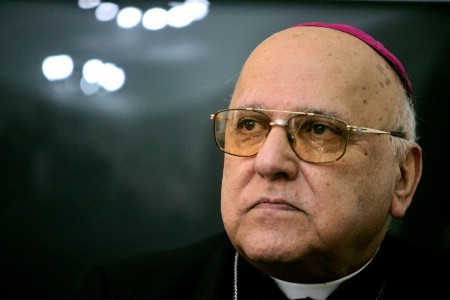
KAIROS PALESTINE
Sermon at St. Etienne Church, by Michel Sabbah – Jerusalem, March 2016
“In this moment of despair and death, we are called to discover the grace of God. The grace of God is love and life. It is not a confrontation with an enemy. It is not a war against an enemy. It is a moment of life and love that God gives us all, and those who occupy us. As God loves them, so we love them.”
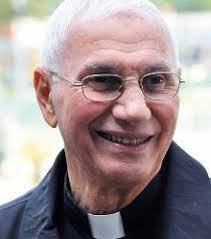
SABEEL
The Challenge Of Jubilee, by Naim Ateek – Advent message 2016, TEXT: Luke 4: 19
“The last fifty years have brought untold suffering upon our Palestinian people….The challenge before us…is to lift high and focus on the essence of the message of Jubilee. It is a message of hope for all the poor and oppressed of the land. It is a vision for the establishment of truth and justice for all the land and its inhabitants. It is an inclusive message so that peace and security can be achieved for all.”
UNITED CHURCH OF CHRIST
Sources: http://www.globalministries.org/meinitiative
https://www.disciplespin.org
From Fear To Joy, by Munther Isaac, TEXT: Luke 2:10-11
In the Christmas narrative, we read about the fear of the shepherds. That fear is our reality today: in Palestine, many are afraid of the future. The Gospel is telling us (1) fear not, because our hope and salvation come from God; (2) the opposite of fear is Joy, the joy of knowing we are not forgotten (3) that joy is active and transformative.
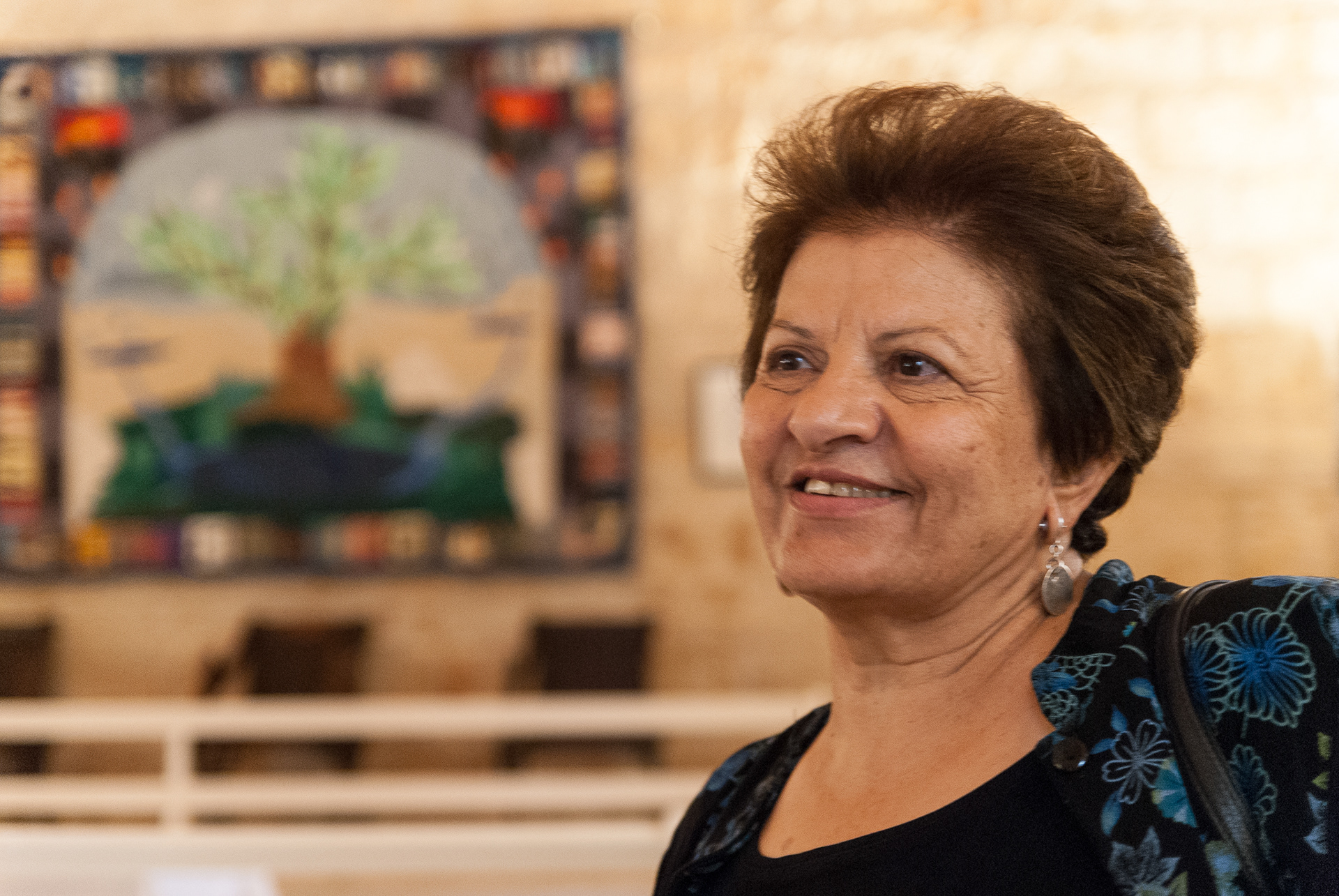
How Can I Not Sing, a reflection by Jean Zaru, TEXT: Psalm 25:1, Luke 1: 46-43, Luke 3: 3-17, Mark 1:15
Living in the shadow of empire, Mary signs to God her savior. In the midst of the oppression surrounding us in Palestine, can I do the same? Putting my faith in God’s promises and working for the future God envisions, how can I not sing?
Seeing God’s Glory, a reflection by Dale Bishop, TEXT: 2 Corinthians 4:5-12
Whereas formerly God’s glory was veiled by the Law, the veil of the Law is now removed so that we can see God directly in the face of Jesus, the crucified Christ. The distinctive mark of the Christian faith is the scandalous proposition that God becomes human so that humans can participate in the divine. The Christian faith is centered on presence, on God With Us, God With Us where we are; it is centered on the Christ who suffers with and for us as the supreme expression of God’s compassionate heart.
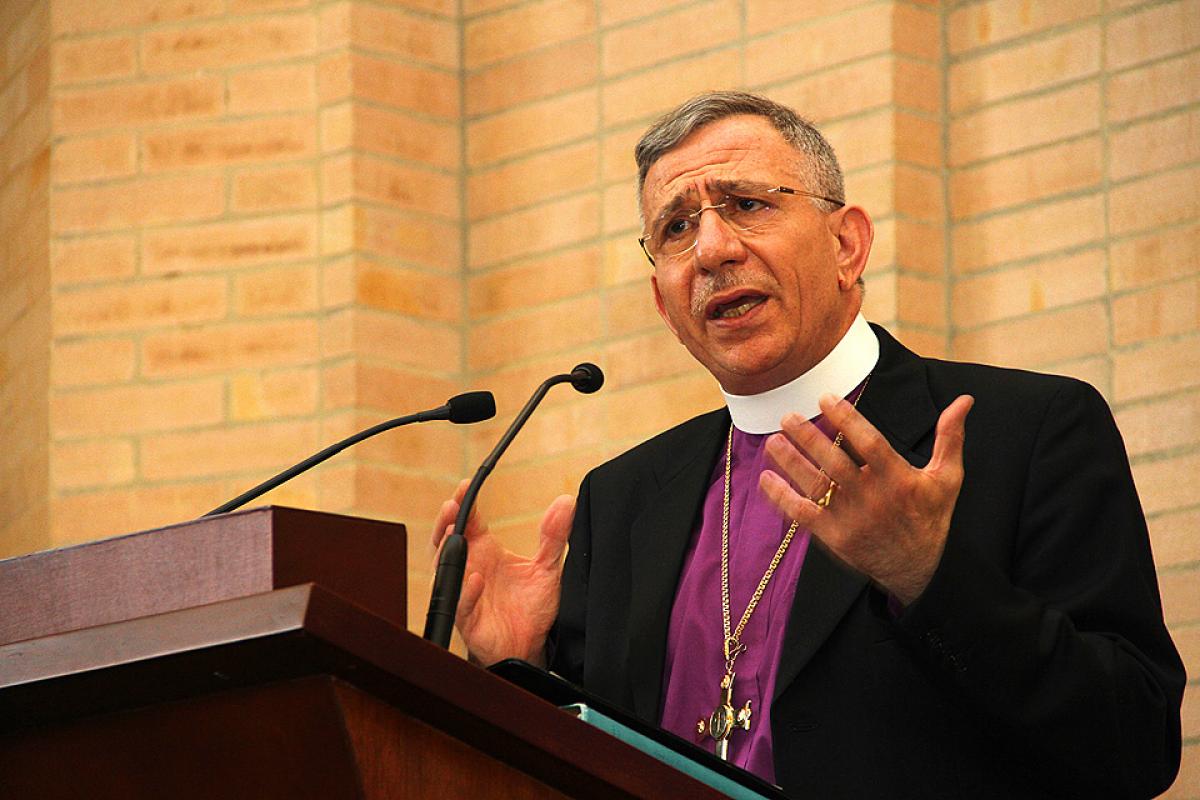
The Escape To Egypt, by Munib Younan, TEXT: Matthew 2:13-15
The flight into Egypt is essential to our understanding of the Christmas story, because it emphasizes that this is about much more than the birth of a baby. The escape of the Holy Family took place in a context of political unrest, a threatened dictator, lies and abuse of power, and the promise of violence against innocent civilians. The current refugee crisis unfolding across the Middle East and Europe brings this chapter of the Christmas story, and Jesus’ status as a refugee, into sharp focus.
Sermons by Loren McGrail, former UCC Missionary in the Holy Land:
Rebuke, Disrupt, Shout: A sermon based on Matthew 25:14-30, presenting the Parable of the Talents as a lesson about power, greed, and corruption
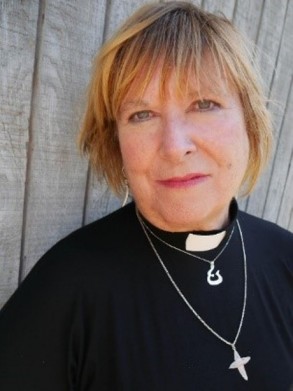
Come Forth and Live: Where are we in the story of Lazarus? What is our work as peacemakers? How can we all rise together?
Hope is Staying Awake and Woke We light a candle of hope and ask: What is our awakening? And for what do we need to stay awoke? We cultivate or keep hope alive by staying awake to love’s shattering and unexpected entrance into our lives, and by staying woke to injustices wherever and whenever they crisscross our lives.
Where Truth Reigns Where Truth Reigns: How do we talk about the reign of Christ in the current post-truth era? God invites us into this season of upheaval to face our own Pilates and their seductive kingdoms of power and domination. Find the way to the manger where love risks to be born again and again.
Give Back the Song: Choose Another Way Home: Epiphany Sunday 2019. We sing back the song the angels have sung by refusing to co-operate with imperial authorities wherever they are and whenever they demand us to bow to them instead of our God.
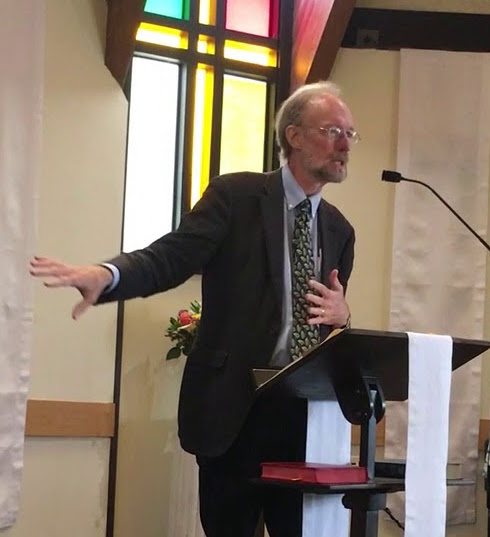
UNITED METHODIST CHURCH
What Does the Lord Require of the Ecumenical Community? a theological reflection by David Wildman
Urging the ecumenical community to take up the moral imperative of boycott, divestment and sanctions (BDS). “More than anything, we in the churches need to stay on message that the BDS movement is a nonviolent moral movement to end longstanding suffering of the Palestinian people at the hands of a discriminatory system that continues daily to seize more and more land. And the time to act is now!” Cites the history of BDS action in churches globally, draws on the history of King and Gandhi, and cites scripture that illustrate of how this advocacy enables us to reclaim a prophetic faith of justice and love. (Source: https://www.fosna.org/sites/default/files/BDS_and_Churches_now.pdf)
UNITED NETWORK FOR JUSTICE AND PEACE IN PALESTINE & ISRAEL (UNJPPI),
UNITED CHURCH OF CANADA
Who Will Join the Banquet of Reconciliation? TEXT: II Corinthians 5:16-21; Luke 15:1-3, 11b-32
In the parable of the Prodigal Son, the celebration banquet really honors the father and his self-sacrifice and generosity toward both sons. The story is about God’s reconciling act of sacrifice, represented by the cross. The parable demonstrates God’s way of reconciliation as a different way for human reconciliation. Reconciliation without admission of guilt is revolutionary.
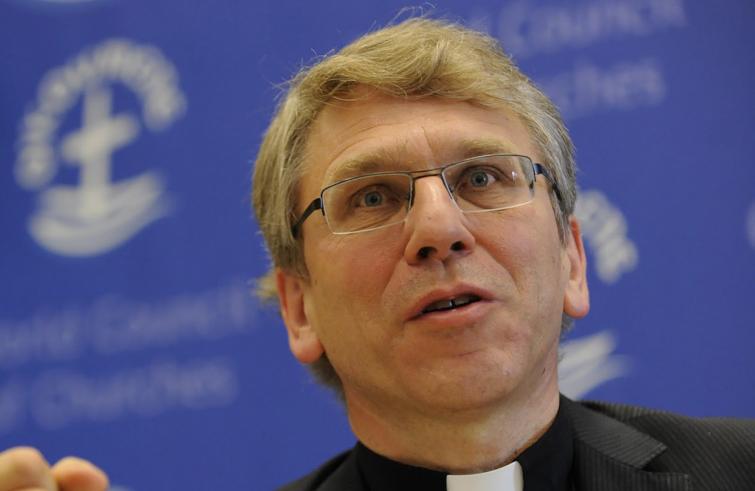
WORLD COUNCIL OF CHURCHES
Lent Sermon Resource 2016, by Rev. Marianna Harris, TEXT: Genesis 12: 1-4a
“All peoples on earth will be blessed through you. This is God’s call/pronouncement/promise to Abraham, to each of us, to our institutions, to the people of Israel and I believe to the Palestinians who have an historic connection with this land.”
Thirst For Justice: A Pilgrimage of Justice and Peace in Palestine, by Olav Tveit, TEXT: Isaiah 58: 1-12, Revelation 22: 1-2 – 10 February 2016, Ecumenical Prayer Service on Ash Wednesday, Lutheran Church of the Redeemer, Jerusalem.
Launch of the Lenten campaign of Ecumenical Water Network of the World Council of Churches: Seven Weeks for Water
“Ash Wednesday reminds us that transformation is needed and possible. True fasting is not about being seen, but to see better what should be changed. The Word of God in the time of Lent does not only give us a critical light to see, but it also helps us see that transformation is possible.”
“As St Paul encourages us to do, let us hope against hope, as the children of Abraham, our parent in faith. Let us proclaim again in this particular place on this particular day, under this particular theme what the prophet Amos said, Let justice flow like water, and righteousness, like an unfailing stream.”
Source: https://www.oikoumene.org/en/resources/documents/general-secretary/sermons/launch-of-seven-weeks-for-water-2016
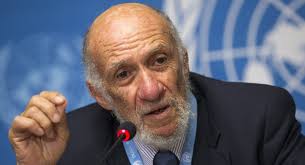
OTHERS
Jesus Was No Stranger to the Cry for Justice, by Elli Atchison, CMEP
“Throughout Scripture, God’s demand for justice is repeatedly seen. His righteousness cannot allow sin to go unpunished forever. However, in His patient love, God often withholds the punishment that His justice demands, giving every opportunity for His people to repent and return their hearts to Him….Jesus came to this earth to be THE answer to God’s ultimate call for justice….Like the parable of the persistent widow who would not give up in her plea for justice, we too should do the same for our brothers and sisters in their times of suffering.”
Psalm 21 and the Human Predicament, by Richard Falk, (cited by IPMN)
Exploring the tension between what we believe to be right and what can be found in biblical scripture
How can we read Psalm 21 – and other violent passages of scripture– in ways that neither avoid its apparent endorsement of genocidal violence nor repudiate the spirituality that is bound up with the sentiments of the author? “This radical separation of good and evil in the globalized world of politics…suggests that societies are still comfortable with the dangerously self-serving approach of Psalm 21.”
“…should not those of us who affirm the spiritual significance of our life experience insist on a reading of religious texts that corresponds with our conscience, and not evade the challenge of rejecting some elements of religious tradition rather than attempting to explain it away?” (Source: https://richardfalk.wordpress.com/2013/09/23/the-violence-of-psalm-21/)



